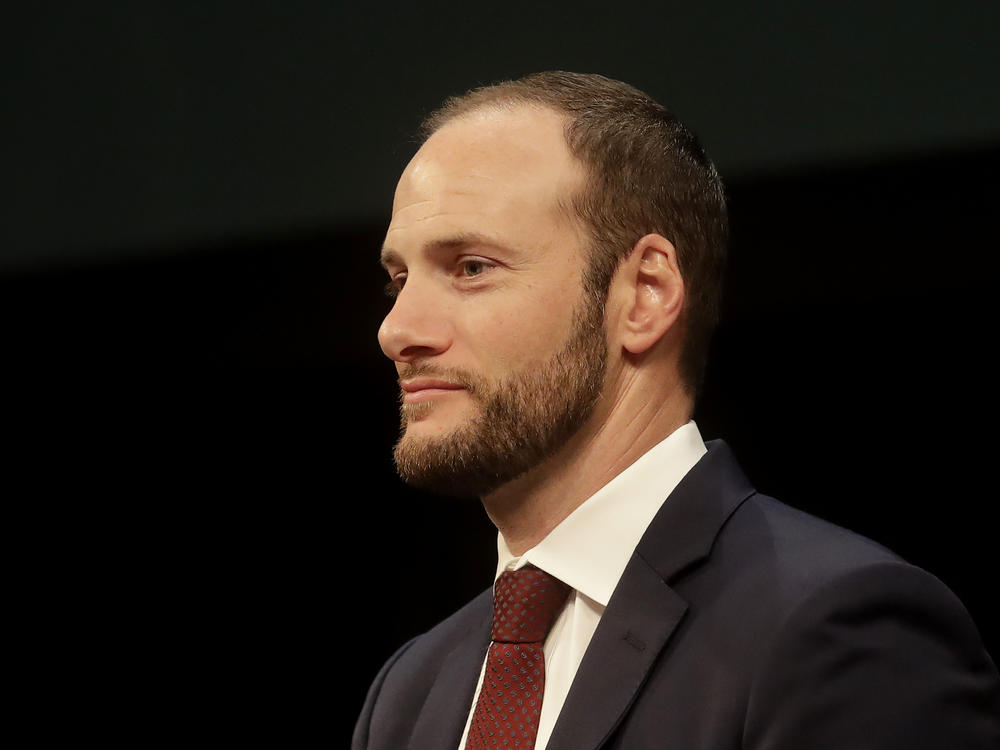Section Branding
Header Content
San Francisco DA drops charges against woman linked to crime through rape victim DNA
Primary Content
San Francisco District Attorney Chesa Boudin has dismissed charges against a woman whose DNA was collected years ago in a rape medical exam and recently used by police to link her to a property crime.
Officials said the case violated the woman's Fourth Amendment rights, which protect people from unreasonable searches and seizures.
"This is illegal," Rachel Marshall, a spokeswoman for the district attorney told NPR on Thursday.
Marshall said Boudin's office only learned about the practice after prosecutors combed through hundreds of pages of documents related to the 2021 felony property crime. In going through evidence, they uncovered that the San Francisco Police Department searches a database that includes DNA collected from sexual assault victims to identify possible suspects. The San Francisco Chronicle, which was given permission by the DA to review the documents, found the woman had submitted to the medical examination after an alleged rape in 2016.
"We did not know this was happening," Marshall said, adding that it is "a systemic problem that we just became aware of."
"We were told by the SFPD crime lab director that this was standard ... and that is what we are working to end," Marshall said.
When reached by phone, crime lab director Mark Powell declined to answer whether that characterization is accurate, saying the police department will soon address the issue.
Investigators often ask sexual assault victims to provide a sample of their own DNA so that they can differentiate between it and the suspect's. By most accounts, the retrieval of DNA sampling is a traumatic and invasive process for many assault victims. Only a small fraction submit to such medical examinations, the DA's office noted.
"It is our top priority to ensure that we are not dissuading survivors from coming forward or creating additional barriers" for them to report cases of rape, Marshall said.
As of Thursday, it is unclear whether anyone has been convicted on the basis of evidence collected from a victim's DNA, Marshall said.
The outcome of the woman's alleged 2016 rape and the subsequent investigation is also unclear. Marshall said she could not offer any information about it to protect the woman's identity.
Earlier this week, SFPD Chief Bill Scott addressed the outrage raised by news of the charges against an alleged rape victim but did not confirm that his department had identified her as a suspect using her victim's DNA sample against her.
"If it's true that DNA collected from a rape or sexual assault victim has been used by SFPD to identify and apprehend that person as a suspect in another crime, I'm committed to ending the practice," he said on Monday.
In the same statement, Scott also said he was told the department's current DNA collection policies were legally vetted and conform with state and national forensic standards. But he implied he does not know the extent of the practice and has ordered the assistant chief for operations and the investigations bureau "to thoroughly review the matter and report back to me and to our DA's office partners."
Marshall said there is no established timeline for the investigation and the SFPD has not offered any further statements over the past three days.
The relationship between Scott and Boudin has been strained since the DA was elected in 2019 amid a wave of progressive prosecutors promising reforms to the judicial system and mass incarceration.
He is currently at the center of a recall effort led by conservative activists who say his policies have made San Francisco less safe.
Marshall said Boudin is working alongside local leaders and California state Sen. Scott Wiener to introduce legislation to prevent DNA evidence from a victim's rape kit o be used for anything other than investigating that crime.
Copyright 2022 NPR. To see more, visit https://www.npr.org.

